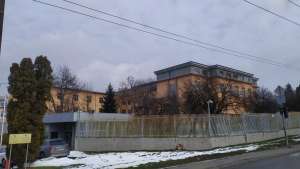SARAJEVO, July 2 (FENA) - In just over a week's time, on 11 July 2020, we will be marking the twenty-fifth anniversary of the fall of Srebrenica and the start of the Srebrenica Genocide. To mark this somber occasion, Gesellschaft für bedrohte Völker (GfbV) / Society for Threatened Peoples (STP) is today publishing a collection of personal testimonies, articles and essays documenting the legacy of the Genocide under the title "Srebrenica: the marginalization and retraumatization of women and children 25 years after genocide".
This Documentation examines the lasting impact of the tragedy on survivors who, a quarter of a century after the events of July 1995, are forced to relive the pain of their experiences on a daily basis. Contributors describe the aftermath of loss, inter/trans-generational trauma, genocide denial, the international community's neglect and abandonment of the Western Balkans, and the continuing failure of the United Nations to learn from its past mistakes.
"Our Documentation gives survivors of the Genocide a voice", Jasna Čaušević, GfbV/STP's Genocide Prevention and Responsibility to Protect specialist explained.
"The women and children of Srebrenica, who lost fathers, husbands, brothers, and sons, tell us and tell the world about the trauma they suffered and continue to suffer and they remind us of our own historic involvement and responsibility." Noted scholars and specialists in the fields of genocide studies, civil and human rights, and psychology assess and contextualize their experiences.
"Srebrenica also offers us an example of how the errors and inadequacies of the international community and the United Nations before and during the 1995 genocide had tragic consequences," Čaušević noted."Their response to genocide was too little and too late. Twenty-five years later, ignorance of the problems faced by the "next generation" is commonplace. And denial of the reality of this terrible crime has become widespread throughout much of the former Yugoslavia and beyond.“
In July 1995, the Eastern Bosnian enclave of Srebrenica, under siege for three and a half years and supposedly a UN-protected "safe zone", fell to a major Serb offensive commanded by General Ratko Mladić.
In the mass killings that ensued, carried out under his command and on the instructions of the Bosnian Serb leader Radovan Karadžić, at least 8372 men and boys and 571 women were slaughtered. Both Karadžić and Mladić were subsequently found guilty by the International Criminal Tribunal for the Former Yugoslavia of the crime of genocide at Srebrenica.
Professor of philosophy and studies of Holocaust and genocide at Southern Connecticut State University David Pettigrew, the author of the two articles in an interview with FENA, considers it a very important report because he remembers the victims of genocide in Srebrenica, and is dedicated to the late mother of Srebrenica, Hatidža Mehmedović, but also to all victims of genocide.
“It is in this way that we resist against the denial of genocide, and the very name of the report speaks of the lasting impact of the tragedy on the survivors who, still suffering from losses and trauma, are subjected to retraumatization due to genocide denial and glorification of convicted war criminals,” stressed Pettigrew.
He also labeled as important that the report was prepared by an international non-governmental organization based in Germany (Society for Threatened Peoples), an organization capable of effectively disseminating the report to social and religious leaders, political leaders and human rights organizations, and all organizations and individuals with capacity to shape the future of the region.
In a section he wrote about the denial of the Srebrenica genocide, Pettigrew stressed that denial, glorification of convicted war criminals and "triumphalism" (celebrating war crimes) in the entity of Republika Srpska threatens with the recurrence of genocide and retraumatizing of the survivors.
He also condemned the escalation of the denial of the Srebrenica genocide on the world stage, recalling the fact that the Nobel Prize for Literature was awarded to Peter Handke, the denier of the Srebrenica genocide.
He also drew attention to the fact that the glorification of convicted war criminals, as well as public gatherings of the ultranationalist organization, such as Ravna Gora Chetnik Movement in the Republika Srpska, have been an inspiration to anti-immigrant and anti-Muslim terrorists in Norway and New Zealand.
“In both of these attacks, the perpetrators indicated that they were inspired by Radovan Karadžić and extreme nationalism. The Hague Tribunal and the international community have failed to address such toxic ultra-nationalism at its source,” Pettigrew said.
The report brings the stories of surviving victims, scholars and activists, including Hasan Nuhanović, Hikmet Karčić and Sonja Biserko.
On Friday 10 July 2020, GfbV/STP will honor the memory of the victims of the Srebrenica Genocide with a ceremony of remembrance and the laying of a commemorative wreath. The ceremony will take place at 11 a.m. at the Neuen Wache memorial, Unter den Linden 4, 10117 Berlin.
(FENA) S. R.











